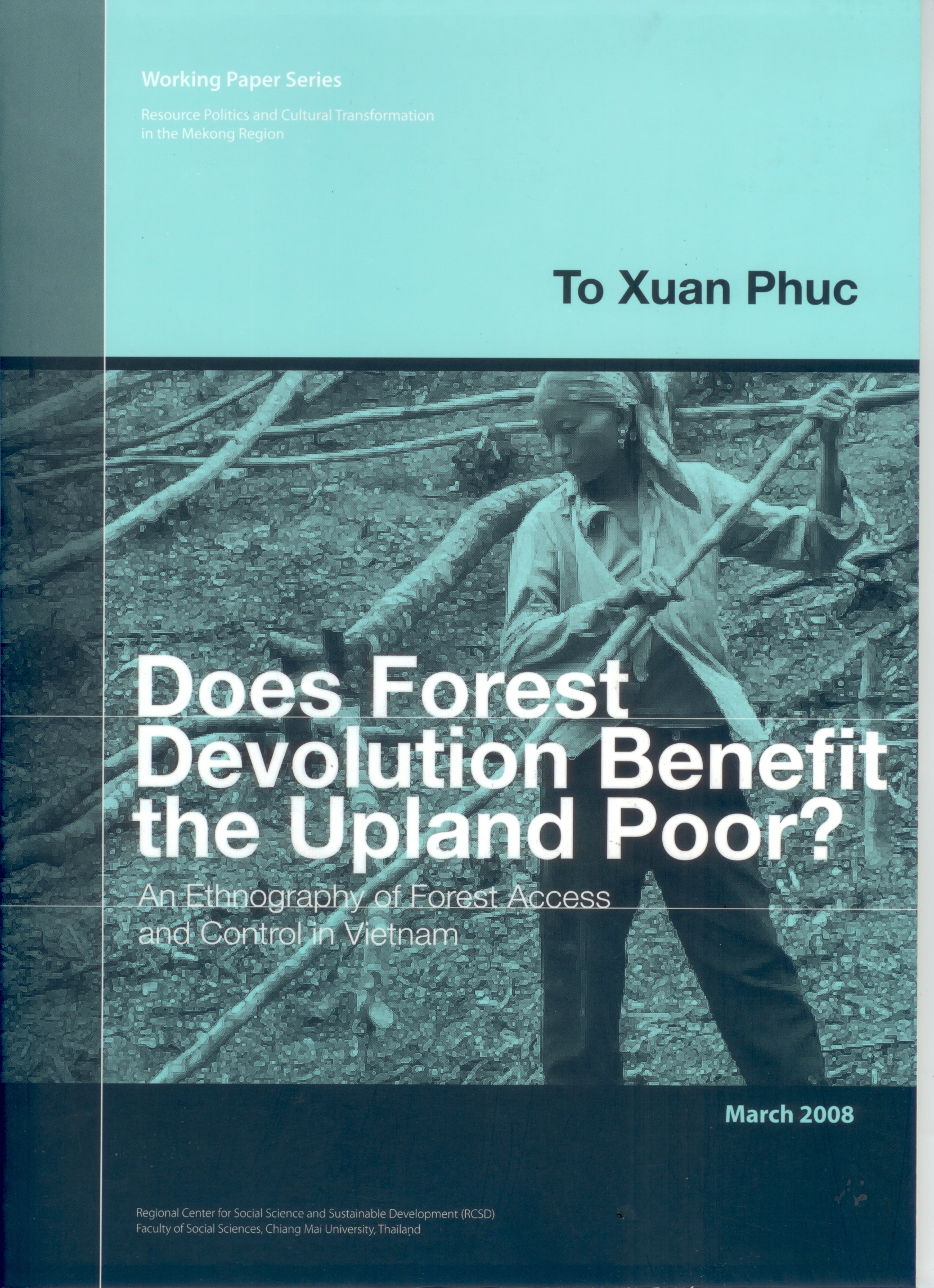An Ethnography of Forest Access and Control in Vietnam
Forest devolution policies in Vietnam were implemented in the early 1990’s under which the government transferred management power over forestland, previously controlled by state enterprises or local authorities, to local households with a belief that they would improve local livelihoods for the upland poor and stabilize forest cover. The paper examines impacts of the devolution policies among villagers in two Dao villages in northern Vietnam. The policies put emphasis on forest protection rather than local needs, causing conflicts between local people and local state agencies. Individual rights over the forest often come with stringent obligations that restrict the villagers’ rights in using forestland. At the local level, implementation of devolution policies is strongly influenced by local power relations; local elites obtain almost all benefits from the policies. It also suggests that in order to understand the uplands in Vietnam and elsewhere in Southeast Asia, we need to go beyond the notion of a property rights system and study other mechanisms that play roles in determining on-the-ground villager access to and control over natural resources.
Publication date : March 2008
Price : 180 Baht / 7 US$
- THEME
- Ethnic Politics | Resource Governance

